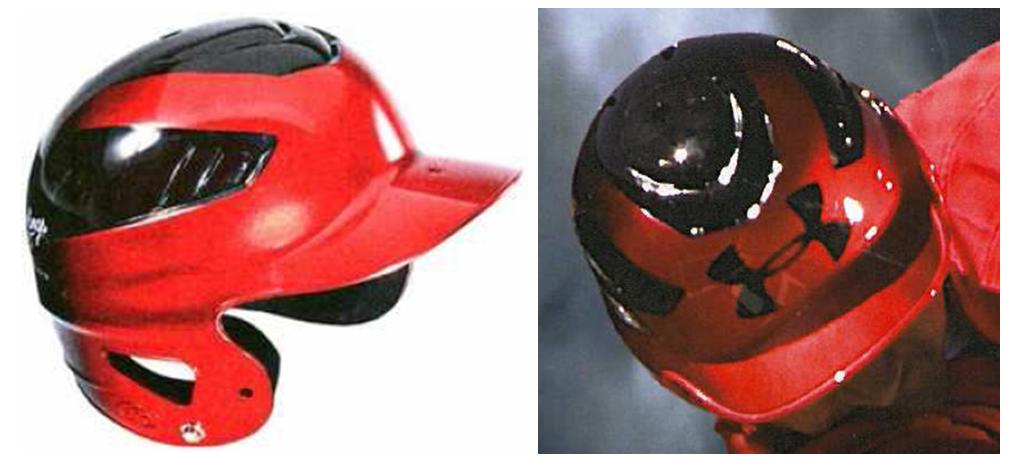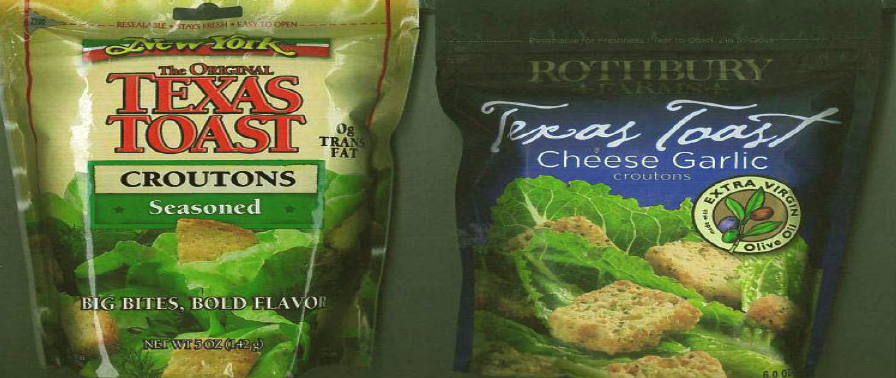Entries by Michael Atkins (1064)
Georgetown Brewery to Rename "9LB Porter" to Resolve Trademark Dispute
 Seattle’s Georgetown Brewery will change the name of one of its beers to resolve a trademark dispute.
Seattle’s Georgetown Brewery will change the name of one of its beers to resolve a trademark dispute.
That’s what the Seattle Beer News blog reported yesterday.
Georgetown will rename its “9LB Porter” as “Georgetown Porter.”
Georgetown makes the beer for the 9 LB Hammer bar in Seattle’s Georgetown neighborhood.
The impetus behind the change reportedly was Magic Hat Brewing Co., which sells a beer it calls “#9.”
Georgetown’s letter to its customers explaining its perspective of the dispute is reprinted in SBN’s post.
Magic Hat apparently offered to license the mark to Georgetown, which Georgetown could not accept.
“[W]e decided that we could not in good conscience grant someone else ownership of the name 9LB Porter,” Georgetown’s spokesperson said. “[We] felt that the brand does not rightfully belong to us to sign over to some other brewery. We really feel like it belongs to the 9LB Hammer and don’t want some other brewery owning it. In all fairness to Magic Hat …, they did make an effort to compromise. Unfortunately, we just couldn’t agree on the name-ownership issue.”
Nonprofit Claims "Certified Electronics Recycler" is Generic; Seeks Cancellation
The Basel Action Network works to prevent the export of toxic electronic waste from the U.S. and other developed countries to developing countries that are not able to recycle electronic components safely.
On June 7, it sued the International Association of Electronics Recyclers and its successor, the Institute of Scrap Recycling Industries, Inc., to cancel the registration for CERTIFIED ELECTRONICS RECYCLER as a certification mark on the ground that it is generic.
Basel owns a registration for the E-STEWARDS certification mark.
Basel alleges it is injured by not being able to use the terms “electronics recycler,” “certified recycler,” and “certified electronics recycler” in connection with its certification program. It also alleges that ISRI’s continued use and registration of CERTIFIED ELECTRONICS RECYCLER suggests that ISRI has a monopoly on certifying those who recycle electronic equipment.
The defendants have not yet answered the complaint.
The case cite is Basel Action Network v. International Association of Electronics Recyclers, No. 10-931 (W.D. Wash.).
Rawlings Sues Under Armour for Use of Rebranded Batting Helmet in Ads
 Rawlings’ complaint alleges Under Armour (right) put its logo on
Rawlings’ complaint alleges Under Armour (right) put its logo on
Rawlings’ helmet (left) without Rawlings’ permission.
On June 7, Rawlings Sporting Goods Co. sued Under Armour, Inc., in the Western District for false designation of origin, trade dress infringement, and other Lanham Act causes of action.
The reason?
Rawlings says Under Armour put its logo on Rawlings’ COOLFLO red-and-black batting helmet without Rawlings’ permission and used the helmet in at least two magazine advertisements for Under Armour batting gloves.
The complaint alleges that “Customers and the public are likely, upon seeing the UA Logo affixed to the COOLFLO® Helmet Mark and the COOLFLO® Trade Dress, to mistakenly believe either that the products being sold in association with the helmet originate from Rawlings or to believe that the helmet originates from Under Armour. Customers may also believe that Rawlings sponsors, is affiliated with or endorses the goods sold in association with the COOLFLO® Helmet upon which the UA Logo has been affixed.”
Under Armour has not yet answered Rawlings’ complaint.
The case cite is Rawlings Sporting Goods Co. v. Under Armour, Inc., No. 10-933 (W.D. Wash.).
"Texas Toast" Generic for Big Croutons
 Plaintiff’s (left) and defendant’s use of “Texas Toast” with croutons
Plaintiff’s (left) and defendant’s use of “Texas Toast” with croutons
Not a Western District case, but an interesting one nonetheless.
T. Marzetti Co. sued Roskam Baking Company in the Southern District of Ohio, alleging that Roskam’s use of “Texas Toast” in connection with its croutons infringed Marzetti’s TEXAS TOAST trademark for croutons. Roskam defended in large part on the ground that “Texas Toast” is generic for large-size croutons. (Everything’s big in Texas.)
On May 27, after a bench trial, the court sided with Roskam. Here’s what it had to say on the issue of genericness:
“In this case ‘Texas Toast’ is generic. Texas Toast is commonly used as the name of a kind of good. Texas Toast has come to mean a bread product that is larger than normal, including sliced bread, frozen garlic bread, or croutons. Companies have been making and selling Texas Toast for many years, since 1995 when Marzetti started offering frozen, thickly sliced garlic bread in the freezer of grocery stores.
“Indeed, Marzetti acknowledges that other companies selling Texas Toast frozen garlic bread have not been using Texas Toast as a brand. Further, Marzetti relies upon the common understanding that Texas Toast means bigger than normal on the back of its crouton packages, referring to ‘bigger bites’ and ‘Texas-sized bites’ and representing that Texas Toast croutons are a large cut. In the manufacturing and marketing Texas Toast styled croutons, both Marzetti and Roskam rely upon the primary association of the public that Texas Toast conveys something about size.
“Marzetti has not met the burden to prove that the mark is not generic. Although Marzetti submitted trademark applications to the PTO to register Texas Toast and The Original Texas Toast, Marzetti’s own use of these terms convey an expectation of a larger than normal crouton. That use is consistent with the generic meaning of the words. Further, while Marzetti argues that Texas Toast and The Original Texas Toast are brands, the company’s own internal documents make reference to New York croutons. Marzetti’s annual report references Texas Toast croutons as one of the company’s products. Marzetti’s own consumer awareness study shows that none of the respondents identified, independent of any assistance, New York Brand The Original Texas Toast croutons as a product.”
The case cite is T. Marzetti Co. v. Roskam Baking Co., No. 09-584 (S.D. Ohio. May 27, 2010) (Marbley, M.J.).
No Summary Judgment Dismissal in Pull-Tab Trade Dress Case
Plaintiff’s (left) and defendant’s pull-tab designs
Plaintiff Bonanza Press, Inc., and defendant Arrow International, Inc., sell pull-tab tickets used in games of chance. A pull-tab ticket has at least one perforated section that can be removed or lifted to reveal a symbol indicating whether the ticketholder is a winner.
Bonanza has a federal registration for its design, which it describes as “a configuration of a circular shaped gaming ticket having a concentric circular pull-away portion.” Arrow’s pull-tabs are either octagonal with a circular pull-away portion or octagonal with an octagonal pull-away portion.
Bonanza sued Arrow in the Western District for trade dress infringement. Arrow moved for summary judgment on the ground that its octagonal pull-tabs are not likely to be confused with Bonanza’s circular pull-tabs.
On May 27, Western District Judge Richard Jones found that Bonanza’s mark is weak, there was no evidence of actual confusion, and there was no evidence that Arrow developed its design with malicious intent. However, the court also found that the designs are similar at least to some degree and purchasers do not exercise much care when buying pull-tabs. Together, the court found the Sleekcraft factors did not lead to one conclusions and, therefore, summary judgment dismissal was not appropriate.
The court also denied Arrow’s motion for summary judgment on Bonanza’s unfair competition claim.
The court granted Arrow’s motion on Bonanza’s Consumer Protection Act Claim because Arrow has not made any sales in Washington. “Potential sales do not directly or indirectly affect Washingtonians,” the court found. “Thus, because there is no evidence that Arrow’s practices affect Washington’s trade or commerce, its WCPA claim fails as a matter of law.”
The case cite is Bonanza Press, Inc. v. Arrow International, Inc., No. 2010 WL 2196112, No. 08-1624 (W.D. Wash. May 27, 2010) (Jones, J.).